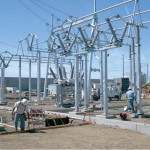The federal government can exercise the clause of force majeure against Independent Power Producers (IPPs) to pull the power sector out of pressure due to outbreak of COVID-19 in the country, said power sector experts.
They said the need for any such measure in an emergency situation like the present one when the power division has stopped the distribution companies from disconnections and extended payment dates to facilitate the consumers, including domestic, commercial and industrial.
There are around 42 IPPs that contribute significantly to electricity generation in Pakistan. It is generally believed that the IPPs were able to get very favourable terms and conditions from the government of Pakistan due to energy crisis in the country in the past.
Talking to Business Recorder, power sector consultant Rana Siddique said the payment of capacity charges, which falls around Rs 3.25 per unit on an average, can remain suspended throughout the period of force majeure.
Force majeure is a common clause in contracts that essentially frees both parties from liability or obligation when an extraordinary event or circumstance beyond the control of the parties, such as a war, strike, riot, crime, plague, or an event described by the legal term act of God (hurricane, flood, earthquake, volcanic eruption, etc.), prevents one or both parties from fulfilling their obligations under the contract. In practice, most force majeure clauses do not excuse a party’s non-performance entirely, but only suspend it for the duration of force majeure.
Former Pakistan Electric Power Company (PEPCO) chief Tahir Basharat Cheema said that IPPs were invited to invest and make their contribution when Pakistan’s economy was confronted with acute energy supply bottlenecks. But since the IPPs can also not import spare parts for their machinery from abroad due to the suspension of flights, therefore, it would be a win-win situation for both sides, he said, adding that an immediate step could be postponement of the payment of capacity charges.
According to him, IPPs should also take up the matter with their lenders to waive off interest against the loans in a force majeure situation. Pakistan has witnessed a record increase in the country’s installed generation capacity through the commissioning of energy-related projects to meet energy needs on a sustainable basis over the last five years or so. The federal government has already started reviewing the prevalent agreements with IPPs.
Irfan Ali, Secretary Power Division, had revealed before the Senate Standing Committee on Power recently that in the Power Policy 2015 heat rate test exists but the previous policies lacked this clause and Nepra approved projects on the basis of figures provided by power producers. A parliamentary body had also asked the government in November last to recover Rs 39 billion from five power producers, as they had provided untrue information of oil consumption for power generation.
Besides, dollar indexation was initially limited to those IPPs who invested in foreign exchange but subsequently the ECC also allowed dollar indexation to those who invested in local currency (rupees). The power division had held long meetings with the IPPs and they have shown their willingness to discuss specific points.
According to the sources from the power division, IPPs have also shown a willingness to renegotiate agreements. The power division’s entire team was engaged in reviewing the pacts with the IPPs on a voluntary basis. Engineer Muhammad Khalid, another power sector consultant, said the government should also force the IPPs to generate power through furnace oil instead of utilizing expensive liquefied Natural Gas (LNG).





